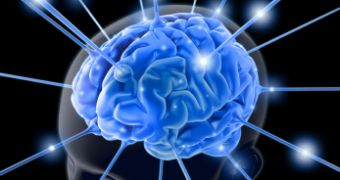The fact that a patient's mood can affect the way cancer tumors evolve in time is far from being a myth anymore, it's a certified fact. Scientific studies showed more than once that patients with an overall calm attitude towards the disease they are fighting have a better chance of decreasing the rate the cancer tumor grows at, probably due to the release of a 'feel good' hormone in the brain, beta-endorphin peptide, associated with exercise, stimulating conversations and a whole other range of pleasurable activities.
In order to help patients increase the release of BEP hormones, they are often encouraged to engage in activities that have the role of relieving stress. According to Rutgers researchers the BEP hormone also has an essential role in controlling the immune functions, thus affecting the evolution of tumors.
"Our findings show promise for future therapeutic treatments for bolstering the immune function", said Dipak K. Sarkar, professor of animal sciences and director of the Endocrinology Program at the Rutgers School of Environmental and Biological Sciences.
BEP neurons have also been previously shown to be connected to diseases such as depression or schizophrenia, since in patients associated with these conditions the number of BEP neurons appears to be much smaller than in healthy people. The same seems to be available for obese people and patients with high risks of infection or cancers.
By using neural stem cells to create BEP neurons, Rutgers researchers showed that BEP hormones were closely related to the evolution of tumors. The newly created BEP neurons were first treated with certain chemicals and were then planted into the brains of rats. By feeding the rats with carcinogens they have induced prostate tumors. The results show that rats with more BEP neurons are able to increase the immune activity in some cells in order to decrease the inflammation of the tumor.
Additionally, about 90 percent of rats with more BEP neurons were immune to prostate cancer, which is fought with BEP neuron activated NK cells that destroy cancer cells developing inside the body. NK cells kill most of the cancer cells, thus reducing the inflammation and decreasing the rate of cancer tumor growth.
"We are optimistic that this research can be applied to human medicine. Instead of transplanting cells, we will investigate whether we can increase BEP using a chemical approach", said Sarkar.

 14 DAY TRIAL //
14 DAY TRIAL //